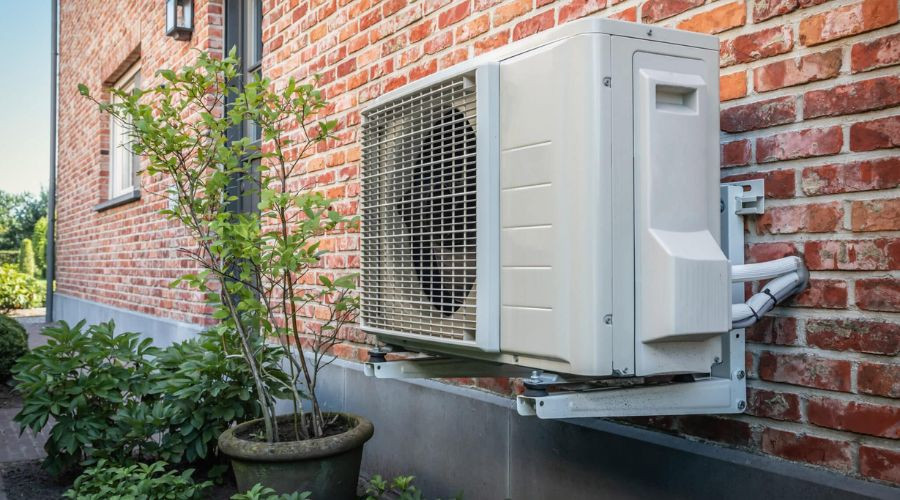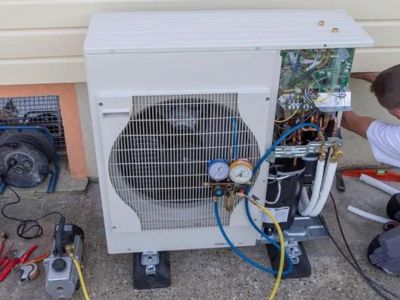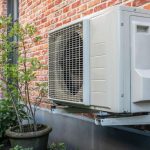
All About Heat Pumps
Heat pump technology has been around for quite some time now. Still, it is only fairly recently that the technology is finally getting traction and becoming a popular alternative in home appliances. Invented in the 1850s, the heat pump system has been used in homes since the 1960s, but it is currently experiencing a renaissance because of its potential cost savings and environmentally friendly benefits backed by government policy incentives.
It’s relatively easy to see why policies are being created to get behind heat pumps. Because heat pumps are powered by electricity, they significantly cut down carbon emissions by about 75 percent, compared with a regular gas furnace. Emissions are reduced even further if the source of the electricity that powers it is generated by clean sources such as wind, solar, and even hydroelectric dams.
Heat pumps are also more energy efficient, using up less power to do the same work as a regular gas furnace, creating more savings in their monthly energy bill for homeowners who opt for heat pump installation. But how exactly do heat pumps work, and how do they achieve the energy efficiency and eco-friendliness they often touted for?
A Heat Pump Explained
Simply put, heat pumps transfer heat from a cool space to a warm space using a refrigerant. The refrigerant, which is usually significantly colder than outside temperatures even during the winter, allows it to absorb heat from outside and bring that heat indoors. The same idea works to allow heat pumps to cool indoor spaces during the summer, with the refrigerant absorbing the heat from inside and dispersing outside, allowing the refrigerant to cool down indoor spaces.
This versatility of switching the same system from heating to cooling and vice versa is one of the biggest advantages of a heat pump. It makes it more energy-efficient and more flexible, allowing for a vast application to many different heating and cooling systems such as a ducted heat pump, a ductless heat pump, or a mini split heat pump. All three are examples of heating and cooling systems with heat pumps at the very core of their operations.
How Heat Pump Installation Can Be Beneficial

When To Get Heat Pump Repair

- A blown motor
- Broken thermostat
- Malfunctioning starter capacity
- Heat pump coils that are frozen
- Low levels of refrigerant
- Mechanical issues
- Problems with the circuit breaker
Any one of these issues warrants a visit from a licensed HVAC technician, who can help assess the damage and work with homeowners to figure out whether the heat pump can be fixed or if the costs for repair are greater than a replacement, in which case, the latter is the way to go.
About Albritton Service Co
Albritton Service Co is a trusted HVAC solutions provider in Ruston and surrounding neighborhoods and communities. This family-owned and operated company has been offering a full range of heating, cooling, and electrical services since 1982 and has become one of the most reliable providers in the region. They have a team of trustworthy technicians who are licensed and insured, bringing their knowledge, skills, and expertise to every situation, even for 24/7 emergency services. Call them today for HVAC service in Ruston, LA.
Distribution Links +
- lifestyle.kynt1450.com
- lifestyle.all80sz1063.com
- lifestyle.myeaglecountry.com
- newsnetmedia.com
- atlanta.newsnetmedia.com
- augusta.newsnetmedia.com
- austin.newsnetmedia.com
- boise.newsnetmedia.com
- buffalo.newsnetmedia.com
- columbia.newsnetmedia.com
- columbus.newsnetmedia.com
- detroit.newsnetmedia.com
- fresno.newsnetmedia.com
- jacksonville.newsnetmedia.com
- losangeles.newsnetmedia.com
- minneapolis.newsnetmedia.com
- monterey.newsnetmedia.com
- myrtlebeach.newsnetmedia.com
- nashville.newsnetmedia.com
- norfolk.newsnetmedia.com
- odessa.newsnetmedia.com
- pittsburgh.newsnetmedia.com
- portland.newsnetmedia.com
- quincy.newsnetmedia.com
- sacramento.newsnetmedia.com
- saltlakecity.newsnetmedia.com
- sanantonio.newsnetmedia.com
- santabarbara.newsnetmedia.com
- https://smb.panews.com
- https://smb.picayuneitem.com
- https://smb.southwestdailynews.com
- https://smb.alabamanow.com
- https://smb.albertleatribune.com
- https://smb.andalusiastarnews.com
- https://smb.lobservateur.com
- https://smb.panolian.com
- https://smb.alexcityoutlook.com
- https://smb.americustimesrecorder.com
- https://smb.atmoreadvance.com
- https://smb.amnews.com
- https://smb.austindailyherald.com
- https://smb.americanpress.com
- https://smb.dailyleader.com
- https://smb.oxfordeagle.com
- https://smb.vicksburgpost.com
- https://smb.bluegrasslive.com
- https://smb.claiborneprogress.net
- https://smb.clantonadvertiser.com
- https://smb.brewtonstandard.com
- https://smb.demopolistimes.com
- https://smb.elizabethton.com
- https://smb.greenvilleadvocate.com
- https://smb.jessaminejournal.com
- https://smb.kenbridgevictoriadispatch.com
- https://smb.leaderpub.com
- https://smb.luvernejournal.com
- https://smb.selmatimesjournal.com
- https://smb.thesnaponline.com
- https://smb.troymessenger.com
- https://smb.windsorweekly.com
- https://smb.clemmonscourier.net
- https://smb.gatescountyindex.com
- https://smb.harlandaily.com


